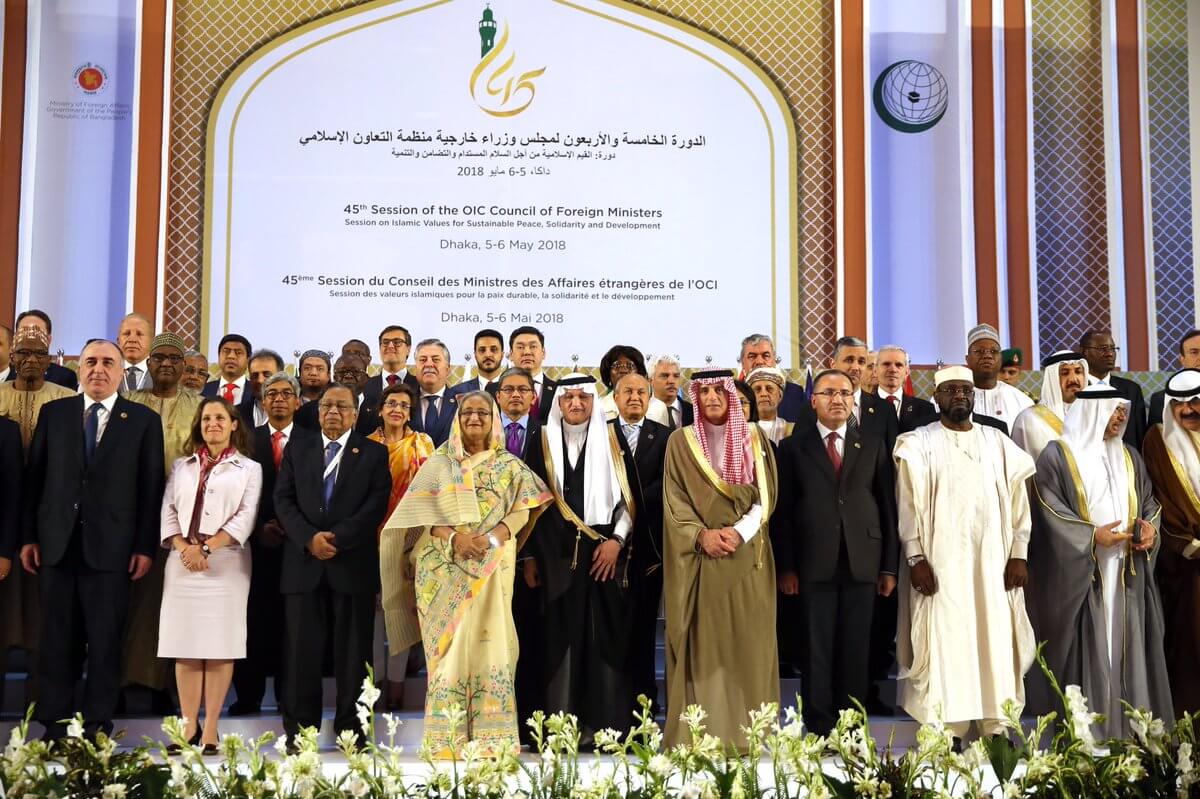The Organisation of Islamic Cooperation’s (OIC) meeting of the Council of Foreign Ministers (CFM) was held on November 27-28 in Niger. According to the report by the Secretary-General of the 57-member grouping, which was presented before the CFM, “The decision of the Indian government on 5 August 2019 towards changing the demographic and geographic composition of the territory, and the continuous blockade and restrictions together with human rights abuses, had awakened renewed efforts of the international community towards a resolution of the conflict.”
Following the meet, the Pakistani Foreign Office said that the group also expressed its condemnation of the “illegal and unilateral actions taken by India on August 5 last year to change the internationally recognised disputed status of the Indian Illegally Occupied Jammu and Kashmir.” Speaking on the statement, Pakistani Foreign Minister Shah Mahmood Qureshi said, “The Resolution demands India cancel the issuance of domicile certificates to non-Kashmiris and other unilateral action including “Jammu & Kashmir Reorganisation Order 2020”, “Jammu and Kashmir Grant of Domicile Certificate Rules 2020”, J&K Language Bill 2020” and amendments to land ownership laws.”
Responding to the statement, the Indian Ministry of External Affairs “categorically rejected” the OIC’s statement. It also reiterated the Indian position that the OIC had no “locus standi” in the issue. Referring to Pakistan’s campaign in the group, it said, “It is regrettable that OIC continues to allow itself to be used by a certain country, which has an abominable record on religious tolerance, radicalism and persecution of minorities, to indulge in anti-India propaganda. We strongly advice the OIC to refrain from making such references in future.”
In the run-up to the meet, Pakistan faced a major setback as the official statement released by the OIC in preparation for the foreign ministers’ meet did not include the Kashmir issue in its agenda despite several requests from Pakistan. With Saudi Arabia and the United Arab Emirates making it abundantly clear that they would not extend support to Pakistan against India, several analysts and experts predicted that the issue was unlikely to feature during the two-day meet in Niger. However, the statement on Kashmir is being considered as a major victory for Pakistan. In fact, according to a tweet by Qureshi, the Saudi representative even endorsed Pakistan’s suggestion.
Moreover, this is also a diplomatic victory for Pakistan, which has seen a severe deterioration in its relations with several Arab powers over the past year. Just on Wednesday, the United Arab Emirates suspended the visit visas of Pakistani citizens, citing security concerns. On the other hand, earlier this year, relations between Riyadh and Islamabad took a turn for the worse when the Kingdom denied the South Asian country’s appeal to convene an OIC Council of Foreign Ministers meet to discuss the Kashmir issue. Consequently, Shah Mahmood Qureshi, said, “If you cannot convene it, then I’ll be compelled to ask Prime Minister Imran Khan to call a meeting of the Islamic countries that are ready to stand with us on the issue of Kashmir and support the oppressed Kashmiris.” Qureshi’s statement was the spark that ignited tensions between Pakistan and Saudi Arabia. In retaliation to Qureshi’s statement, Saudi Arabia halted its oil supply and ended a financial loan deal with Pakistan. These developments also raise doubts about the future of 2019 MoUs signed between the two Islamic countries, which included Saudi investments in Pakistan valued at around $20 billion, including the setting up of an oil refinery in the port city of Gwadar, a strategic area at the crossroads of the Gulf of Oman and a crucial element of the China-Pakistan Economic Corridor (CPEC) project.
India Rejects OIC's Comments on its Actions in Kashmir
In a statement given at the end of the session of the OIC Council of Foreign Ministers, the group called for international action to resolve the ongoing conflict in Kashmir.
November 30, 2020

SOURCE: TWITTER
